Self Regulation and Emotions
Self-regulation is a vital skill, but it’s also something we generally do without much thought. Self-regulation is the control of self by self.
“Someone who has good emotional self-regulation has the ability to keep their emotions in check. They can resist impulsive behaviors that might worsen their situation, and they can cheer themselves up when they’re feeling down. They have a flexible range of emotional and behavioral responses that are well matched to the demands of their environment” Andrea Bell from GoodTherapy.org
Emotional self-regulation involves control of, or, at least, influence over your emotions, thoughts and feeling.
If you had ever talked yourself out of a bad mood or calmed yourself down when you were angry, you were displaying effective emotional self-regulation. Self-efficacy plays a significant role in this process, exerting its influence on our thoughts, feelings, motivations, and actions. Self-efficacy is the belief we have in our own abilities, specifically our ability to meet the challenges ahead of us and complete a task successfully (Akhtar, 2008). General self-efficacy refers to our overall belief in our ability to succeed.
If we are feeling overwhelmed by a situation or living with anxiety and the fight or flight is activated, been able to regulate our emotions and thoughts can be a huge help.
In its most basic form, self-regulation allows us to be more resilient and bounce back from failure while also staying calm under pressure. Researchers have found that self-regulation skills are tied to a range of positive health outcomes. This includes better resilience to stress, increased happiness, and better overall well-being.
How hypnotherapy can help
Hypnotherapy is a excellent choice when we feel we can not get a handle on how we feel and our reactions. Research findings in neuroscience and biology show self regulation can help clients reduce “excess activation in the nervous system” (Canadian Foundation for Trauma Research & Education, n.d.). The excess activation of an off-balance or inappropriate fight-or-flight response, which can be triggered by a traumatic incident or any life event that is significant or overwhelming.
Hypnotherapy can help the client correct this problem, building new pathways in the brain that allow for more flexibility and more appropriate emotional and behavioural responses. The ultimate goal is to turn emotional and or behavioural dysregulation into effective self-regulation.
Self-Regulation Tips
The first step to practicing self-regulation is to recognize that everyone has a choice in how to react to situations. While you may feel like you can’t cope with a situation, it’s not your ability to cope that is the issue, but how you react to it that matters most.
- Recognize that in every situation you have three options: how you approach it, whether you avoid, or if you attack. While it may feel as though your choice of behaviour is out of your control, it’s not. Your feelings may sway you more toward one path, but you are more than those feelings. Practice taking some deep breaths or get out in nature for 5 minutes. Calm the central nervous system and give yourself a pat on the back when you are back in control of Self.
- Become aware of your emotions. Do you feel like running away from a difficult situation? Do you feel like lashing out in anger at someone who has hurt you? If you feel your buttons being pushed, take a moment to acknowledge your emotions and then ask yourself “What is my next step?”
- Monitor your body to get clues about how you are feeling if it is not immediately obvious to you. For example, a rapidly increasing heart rate may be a sign that you are feeling angry or even experiencing a panic attack. Your body can often know before you do, so a quick body scan can point you in the right direction. Giving you time to make the right decision for you.
Practicing mindfulness is a great way to improve one’s ability to self-regulate and to enhance overall well-being. Mindfulness encourages active awareness of one’s own thoughts and feelings and promotes conscious decisions about how to behave, over simply going along with whatever your feelings tell you.
Start to restore balance by focusing on your core needs, rather than those transient emotions. Look beyond temporary discomfort to the larger picture. The practice of Gratitude, meditation and Self Hypnosis can immediately give you back control over your emotions and responses.

